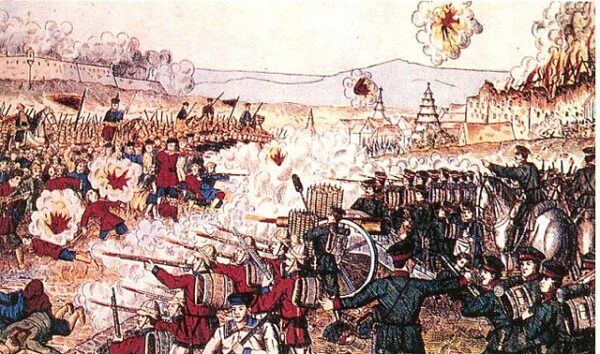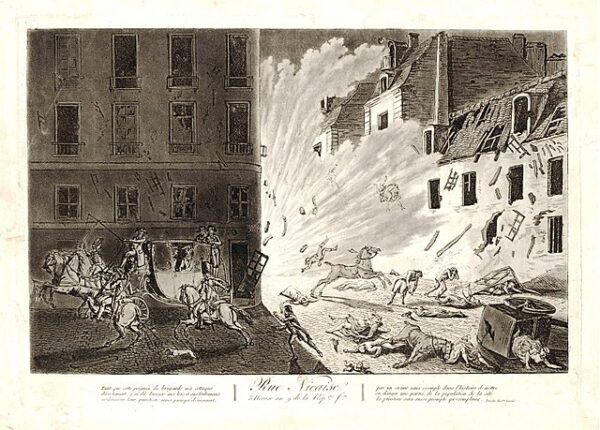The Boxer Rebellion, also known as the Yihetuan Movement, was an anti-foreign, anti-colonial uprising in China between 1899 and 1901. This tumultuous period was marked by intense anti-imperialist sentiments among the Chinese population, which culminated in violent clashes and significant international intervention. The rebellion was named after the “Boxers,” a secret society officially known as the Yihequan (“Righteous and Harmonious Fists”), who aimed to rid China of foreign influence and Christian missionaries.
The roots of the Boxer Rebellion lay in widespread economic distress, social unrest, and resentment towards foreign dominance in China. The 19th century had seen a series of humiliations for China, including defeats in the Opium Wars and the imposition of unequal treaties by Western powers and Japan. These treaties eroded Chinese sovereignty and facilitated foreign economic exploitation, particularly by allowing foreign entities to control key ports and trade routes. Additionally, the spread of Christianity by foreign missionaries was perceived as a direct threat to Chinese traditions and societal structures.
The Boxers, initially a peasant movement, gained significant traction by promoting traditional Chinese martial arts and spiritual rituals, which they believed could make them impervious to bullets. Their rallying cry was to expel the “foreign devils” and Chinese Christians who were seen as collaborators. By late 1899, the Boxers began targeting foreign nationals and Chinese Christians, leading to widespread violence across northern China.
The Qing Dynasty, which was the ruling dynasty at the time, had a complex relationship with the Boxers. Initially, the Qing court, led by Empress Dowager Cixi, was ambivalent. However, as the movement gained momentum and the threat of foreign intervention grew, the Qing leadership saw an opportunity to leverage the Boxers’ anti-foreign sentiment to consolidate their own weakening power. On June 21, 1900, under significant pressure and in a bid to align with the popular uprising, the Qing Dynasty declared war on the foreign powers, endorsing the Boxers’ cause.
The declaration of war precipitated an unprecedented international military response. The Eight-Nation Alliance, comprising Japan, Russia, Britain, France, the United States, Germany, Italy, and Austria-Hungary, assembled a formidable coalition force. Their primary objective was to protect their nationals, diplomats, and commercial interests in China. The most significant confrontation occurred in Beijing, where the Boxers and Qing troops laid siege to the foreign legations in the city’s Legation Quarter, a district where foreign diplomats resided.
The siege lasted from June to August 1900 and was marked by fierce fighting and significant casualties on both sides. Despite the Boxers’ determination and the initial success of the siege, the modern, well-equipped forces of the Eight-Nation Alliance eventually broke through. On August 14, 1900, the Allied forces captured Beijing, effectively ending the Boxer Rebellion.
The aftermath of the Boxer Rebellion had profound implications for China. In September 1901, the Qing government was forced to sign the Boxer Protocol, which imposed severe penalties. These included a massive indemnity of 450 million taels of silver (to be paid over 39 years), the execution of high-ranking officials who had supported the Boxers, and the permanent stationing of foreign troops in Beijing. These terms further weakened the Qing Dynasty, exacerbating internal discontent and accelerating the eventual fall of the dynasty in 1912.
The Boxer Rebellion thus stands as a significant episode in Chinese history, reflecting the tensions and conflicts arising from foreign encroachment and internal strife. It highlighted the desperate measures taken by a faltering regime and a populace striving to reclaim sovereignty and dignity in the face of overwhelming external pressures. The legacy of the Boxer Rebellion continued to influence Chinese nationalism and anti-imperialist sentiments well into the 20th century.






